Summertime is the perfect time to enjoy your garden, but if you’ve got the issues of fire ants invasion, it can quickly turn into a nightmare. These annoying insects can swarm and sting, leaving you with painful red welts on your skin.
Annually, fire ants sting millions of pets, wild animals, and people in their households. That is why you ought to understand how to fight them back.
Their searing (despite the name of these species) bites can be quite painful. They habituate mostly in the southern states of the US. Bear in mind that fire ants normally bite when their vast nests are ruined or severely disturbed without caution. That is what the National Institutes of Health (NIH) claims.
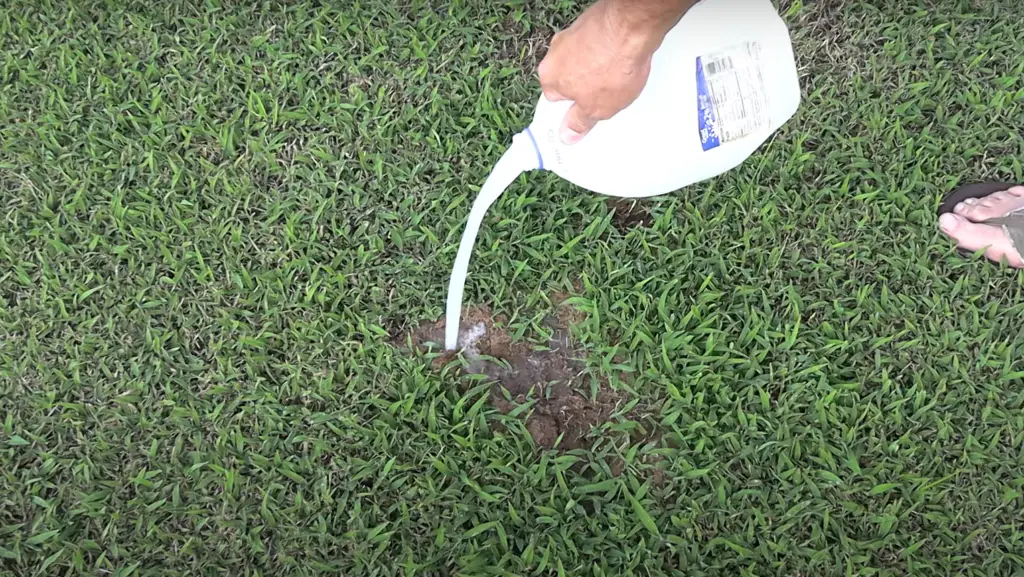
The NIH also predicts that this nasty insect species may cause billions of dollars in losses in the agricultural market annually. And it doesn’t even include the medical expenses for people who seek treatment because of being bitten[1].
In this blog post, gardening experts will discuss how to cope with fire ants in your garden using natural methods. They’ve tried to pick the safest techniques to protect you, your family, and your pets. Stay safe this summer and keep those annoying fire ants at bay!
How Can You Recognize Fire Ants
Learn to differentiate them by the look
Fire ants, like many other species, are difficult to differentiate from one another since they share features with less hostile ants. Initially, there’re red fire ants and black fire ants.
In appearance, red ants are of a beige/tan color that is easy to see through their translucent bottoms of brownish-black shades.
On the contrary, black fire ants look fully black without different shades of colors.
The most common variety is black – however, it can also be red or brown.
However, fire ants may drastically vary in size depending on their colony type and location.Learn to differentiate their mounds
A fire ant mound is small, only reaching about 18 inches (45 cm) in diameter and 12 inches (30 cm) in height. The center of the mound is where the queen resides.
The outer edges are where you’ll find the worker fire ants caring for larvae, gathering food, and maintaining the nest [3].
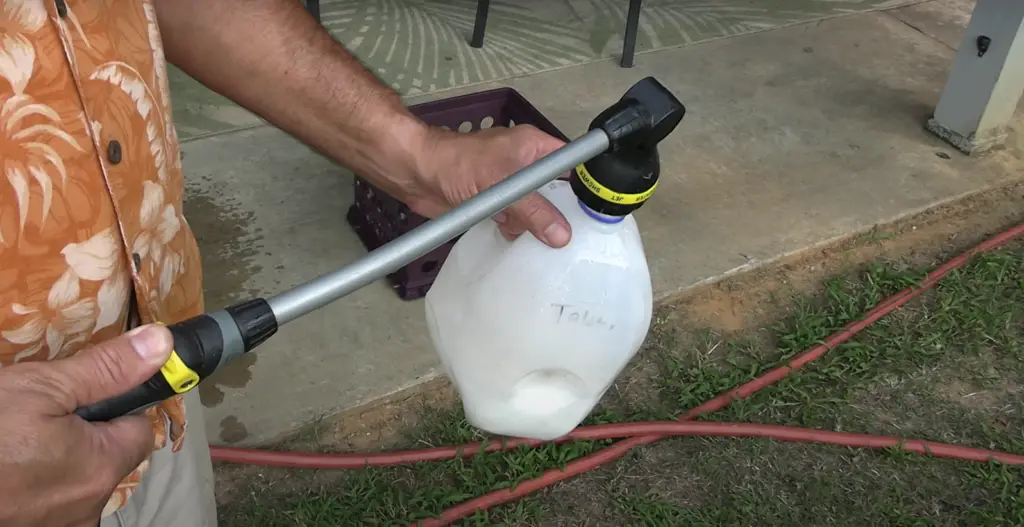
You can find fire ant mounds anywhere there’s loose soil, including open fields, parks, gardens, pastures, and lawns.
They are typically located close to trees/bushes/shrubs since worker ants use these objects as landmarks when they venture out to forage for food.
Learn how they behave
Fire ants are usually more active in the morning or late afternoon. The insects build a mound on the ground. But remember – these ants are aggressive to humans and pets that disturb their nests/mounds.
Fire ants, unlike other ant species, behave in a peculiar way. Common fire ants are noted for the aggressive nature in comparison to other ant species. When you damage or ruin their nests, fire ants will severely fight back against their attacker.
To determine if it’s a nest, insert a long pole or shovel into the mound and quickly back away to prevent the ants from coming to the stick and harming you [4]. In a case, you’ve discovered the nest with the ants inside they will surely swarm and destroy it.
Interesting fact: other ants don’t react as rapidly as fire ants when attacked. When harmed or alarmed, only fire ants are capable of climbing vertical surfaces. That is why it is necessary to keep an eye out for grass blades and debris around the disturbed nests because they may attack from these locations.
Be prepared to treat the bites and stings
Fire ants have a stinger on their abdomen that they use to inject venom into their prey. The venom is a protein-based alkaloid toxin.
While the stinger is not barbed, it can penetrate human skin.
For some people, this reaction is minor, but for others, it can be severe and cause anaphylactic shock.If you are severely allergic to the stings by fire ants, you may experience such symptoms such as hives, swelling of throat/tongue, difficulty breathing, dizziness, and nausea within minutes after being bitten or stung.
Fire Ants Vs. Red Ants: Major Differences
Fire ants are typically less harmful than red ants because they tend to be much bigger. Red ants (sometimes they are called as carpenter ants) also can bite and sting if they feel threatened, just like aggressive insects. But the key difference from fire ants – they do not swarm. Basically, it means that a colony of red ants won’t rush to attack a human or animal once their nest is disturbed.
Fire ants do congregate in flocks, and thousands of fire ants may swarm their target before biting simultaneously.
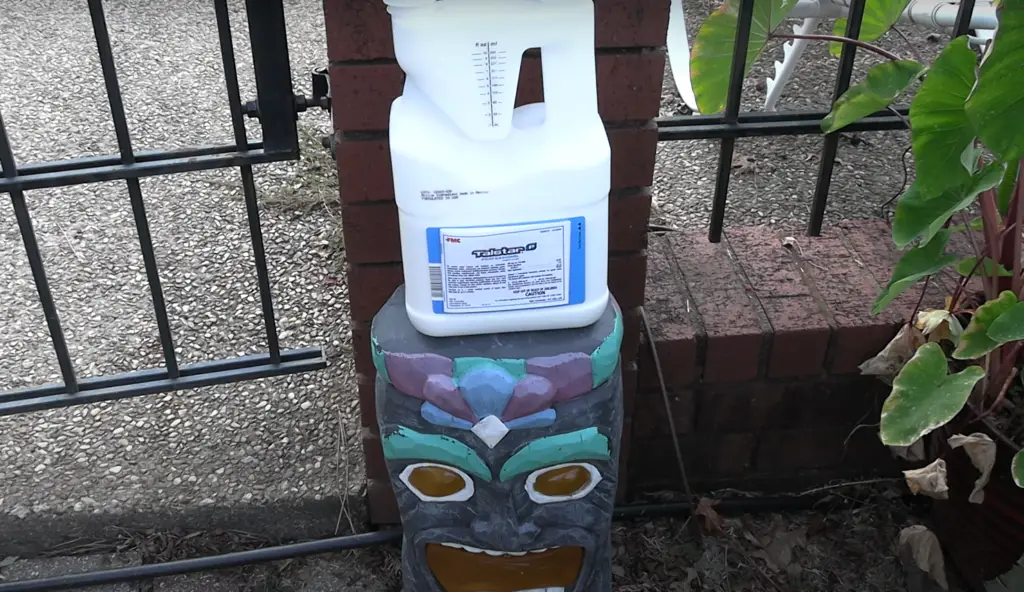
Red ants prefer to dwell in trees and other readily available wood, such as woodpiles or even the wood in buildings. Also, red ants tend to be more active during nighttime.
Locating The Fire Ant Nest
The first step is to locate the fire ant nest. This can be tricky, as they often build their nests in hidden or hard-to-reach places. However, there are a few signs that can help you narrow a few telltales down the search area.
Look for large mounds of dirt near where you’ve seen fire ants before. These mounds can be up to 18 inches tall and contain thousands of ants [5].
Fire ant nests also typically have a small hole in the center of the mound. If you see this, it’s a good indicator that there is a nest nearby.
Once you’ve located the nest, it’s time to start thinking about how to get rid of it.
How Can You Cope with Fire Ants Using Pesticides
Broadcast Treatment
The first step is to identify the areas where ants are most active. These will be locations where you see the most ant hills. Once you’ve found these hot spots, broadcast a dry pesticide over the entire area. Make sure to follow the instructions on the package, as different products have different application rates.
After broadcasting the pesticide, water it in lightly with a garden hose. This will help the chemicals penetrate down to where the queen is located. The treatment will take a few days to work, but you should start seeing results within a week [6].
In a case the infestation is rather small, you may need the spot treatment for standalone mounds. You may use an aerosol spray with pesticides. Directly pour the solution straight onto the mound. Then drench it until the solution begins running off.
Mound Drenching
A liquid pesticide is usually a more efficient approach to cope with fire ants. This chemical poison may quicker penetrate the nest than any other remedy (for example, the popular method – boiling water).
Liquid solutions are frequently highly concentrated so make sure to dilute before using.Tyoically, it is enough to apply at least 2-3 gallons of the diluted solution, as directed by the manufacturer, to drench the whole anthill. A good product may destroy on contact and also leaves active residue behind that kills other ants as soon as the insects enter/leave the nest.
Keep in mind, though, that this approach is just as hazardous as the boiling water technique since the designated ant eradicator must get within range of the nest to pour the solution.
You might also accidentally spatter the insecticide on your body or splash it in your face.
Use the Services of a Professional Exterminator
If you have a large infestation of fire ants or you just don’t feel comfortable dealing with them yourself, the best solution is to call in a professional exterminator.
A professional will be able to quickly and efficiently get rid of the ants for you. They will also be able to provide you with advice on how to prevent fire ants from coming back in the future.
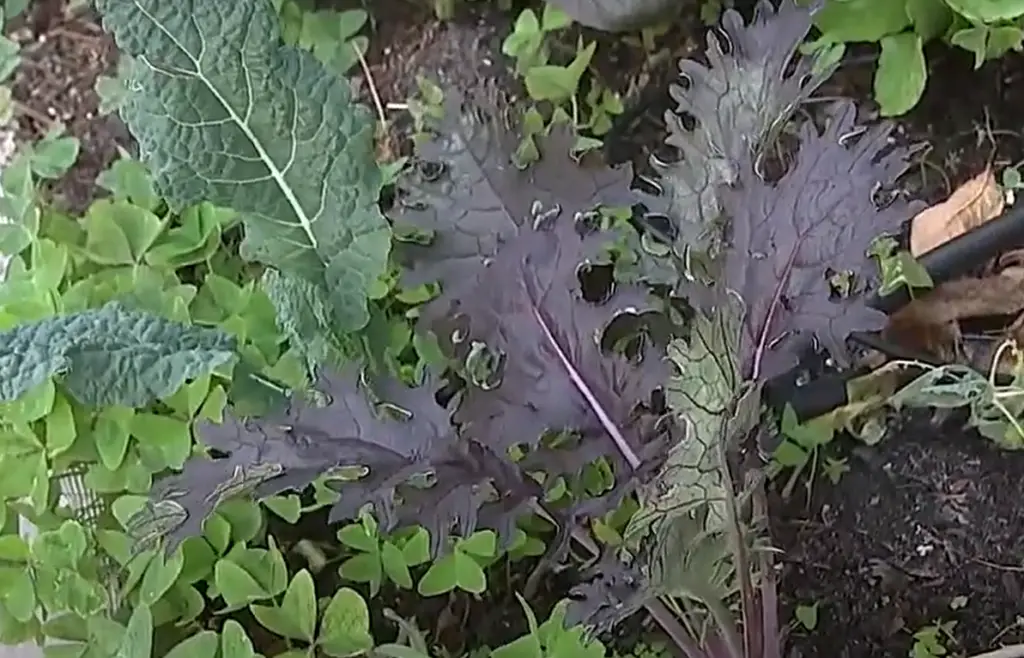
Exterminators usually charge by the hour, so expect to pay around $100 for their services. But it’s worth it to get rid of these pests once and for all.
Fire ants are a menace in any garden. But with some effort, you can get rid of them for good. Whether you opt for a broadcast treatment, mound drenching, or calling in a professional, getting rid of fire ants doesn’t have to be difficult. Just be patient, persistent, and careful, and you’ll soon have your garden back.
Natural Remedies to Cope with Fire Ants
Use Boiling Water
It is the simplest and typically quite effective method to cope with fire ants. All you require is a pot of water to boil and then pour it directly over the nest/mound. The heat will kill the insects instantly.
Diatomaceous Earth (DE)
This is a natural substance that can be found in most hardware stores. It works by dehydrating and killing the fire ants. Simply sprinkle it around the perimeter of your garden and on any mounds that you see.
Soapy Water
The soapy water may suffocate the insects and kill their swarm quickly. Simply mix a few drops of concentrated dish soap with water in a spray bottle. Then you should spray it directly on the mounds.
Natural Ant Baits
Another alternative to expensive and poisonous pesticides is making a natural ant bait.
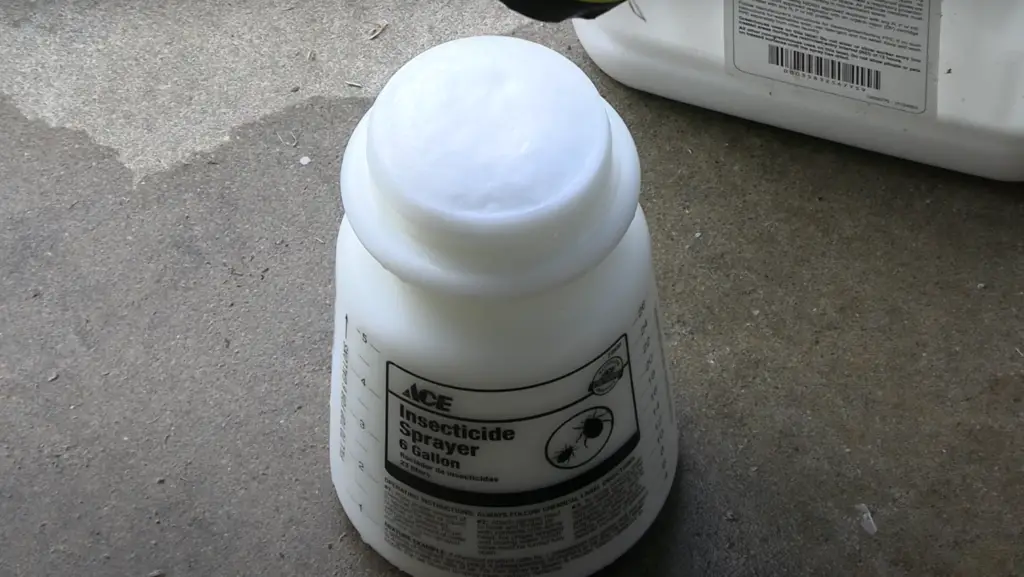
Use honey, sugar, with some Borax for this purpose. These ingredients will surely lure the ants in and kill them instantly.
Dish Soap And Water Mixture
Pour dish soap or any liquid soap into the water. Doing this will create a barrier on the surface of the water that ants will not be able to cross. This method can be used to keep fire ants away from your plants and garden.
Salt
Simply sprinkle some salt around the perimeter of your garden or directly on the fire ant mounds. The salt will kill the ants by dehydrating them.
Cayenne Pepper
Cayenne pepper is another natural substance that can be used to cope with the invasion of fire ants. Simply sprinkle it around the perimeter of your garden or directly on the fire ant mounds. The pepper will irritate the ants and cause them to leave the area.
White Vinegar And Water Solution
Mixing white vinegar and water together creates a solution that can be used to get rid of fire ants. The vinegar will kill the ants and the water will dilute it so that it is safe to use around plants.
Lemon Water
Lemon water is another effective way to get rid of fire ants. The lemon will kill the ants and the water will dilute it so that it is safe to use around plants.
Orange Oil And Dish Soap Mixture
Mixing orange oil and dish soap together creates a mixture that can be used to get rid of fire ants. The orange oil will kill the ants and the dish soap will help to spread it around.
Boric Acid
Boric acid is a natural substance that can be found in most hardware stores. It works by dehydrating and killing the fire ants. Simply sprinkle it around the perimeter of your garden and on any mounds that you see.
Essential Oils
There are a number of essential oils that can be used to get rid of fire ants. Some of the most effective include peppermint, eucalyptus, and lemon. Just mix a few drops with water in a spray bottle and spray it directly on the fire ant mounds.
How To Prevent Fire Ants
How To Keep Fire Ants Out Of Your Yard
A few things you can do to keep fire ants out of your yard:
- Keeping your lawn mowed and free of debris;
- Eliminating standing water sources;
- Trimming back trees and bushes near your home;
- Sealing cracks and crevices in your foundation and exterior walls;
How To Keep Fire Ants Out Of Your Home
A few things you can do to get rid of them in your home:
- Catching them with baits and traps;
- Drowning them with soapy water;
- Freezing them with ice cubes;
- Smothering them with diatomaceous earth;
- Vacuuming them up;
How To Keep Fire Ants Out Of Electrical Equipment
Another way to keep fire ants out of your home is to prevent them from getting into electrical equipment. This can be done by:
- Keeping equipment clean and free of food and water sources;
- Sealing cracks and crevices around electrical boxes;
- Trimming back trees and bushes near electrical equipment;
- Replacing damaged or missing insulation;
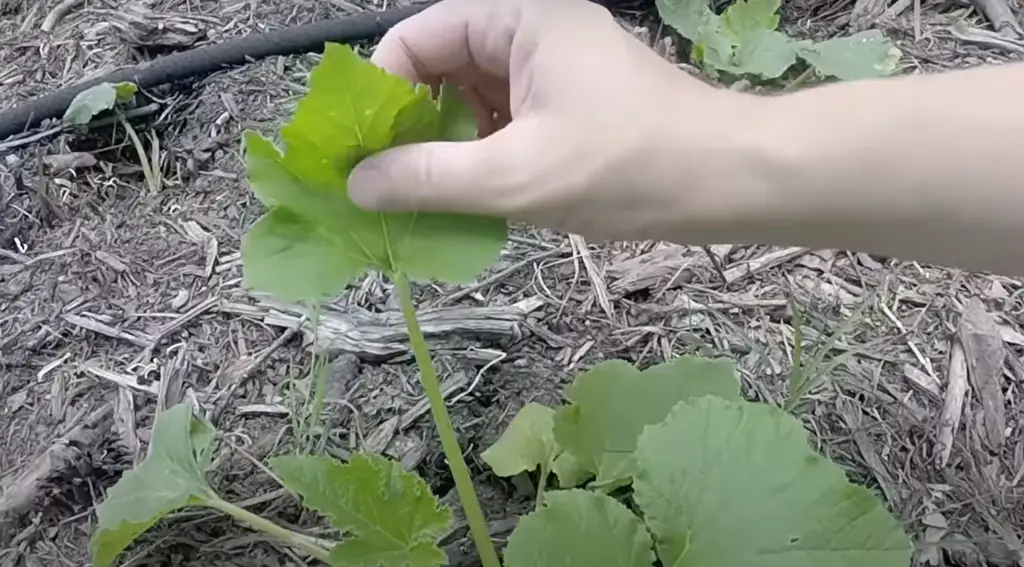
You can also try a combination of these methods to get rid of fire ants for good! Prevention is always the best cure, but if you find yourself dealing with an infestation, be sure to take action quickly to get rid of fire ants before they cause any more damage.
FAQ
What kills fire ants immediately?
A number of pesticides can kill fire ants, but the most effective and fast-acting option is to use an insecticide that contains the active ingredient Pyrethrin. Pyrethrin is a natural compound that comes from the chrysanthemum flower, and it’s very toxic to insects. You can find Pyrethrin-based insecticides at most hardware stores or online.
Another option is to pour boiling water directly onto the fire ant mound. This will kill the ants, but it may also damage your lawn or garden. So be careful when using this method!
What natural thing kills fire ants?
There are a number of natural substances that can kill fire ants, including vinegar, lemon juice, and soapy water. You can also try sprinkling cayenne pepper or cinnamon around the perimeter of your garden to deter fire ants from entering.
How does vinegar get rid of fire ants?
Vinegar is an acidic substance that can kill fire ants by disrupting their digestive system. When fire ants consume vinegar, it breaks down the lining of their stomach and causes them to die. You can use white vinegar or apple cider vinegar for this method. Pour the vinegar directly onto the fire ant mound and wait for the ants to die. This may take a few hours to a few days.
Does salt kill ants?
Many home experts advocate mixing up a potent salt solution and spraying it directly on the ants as a way to get rid of them. Salt is a desiccant that dries out the exoskeletons of insects, causing them to die [7].
Does bleach kill ants?
Yes, bleach can kill ants and other pests. However, it’s important to use a diluted solution of bleach and water so that you don’t damage your garden plants. To make a diluted solution of bleach, mix one part of bleach with nine parts of water.
Then, pour the mixture into a spray bottle and apply it to the fire ants’ nest. This will kill the ants and their eggs.
You can also use this method to get rid of other pests, such as cockroaches and spiders. Just be sure to keep children and pets away from the area until the solution has dried.
Will Dawn kill fire ants?
Yes, dish soap can kill fire ants. Just like with bleach, you’ll want to use a diluted solution of dish soap and water. To make a diluted solution of dish soap, mix one part of dish soap with nine parts of water. Then, pour the mixture into a spray bottle and apply it to the fire ants’ nest. This will kill the ants and their eggs.
You can also use this method to get rid of other pests, such as cockroaches and spiders. Just be sure to keep children and pets away from the area until the solution has dried [8].
Will citrus oil kill fire ants?
Citrus oil can be effective in killing fire ants. To make a citrus oil spray, mix one ounce of citrus oil with two cups of water. Then, pour the mixture into a spray bottle and apply it to the fire ants’ nest [9].
Useful Video: How to Kill & Get Rid of FIRE ANTS! A Long-Term Solution
References:
- https://www.bobvila.com/articles/how-to-get-rid-of-fire-ants/
- https://www.bobvila.com/articles/how-to-get-rid-of-fire-ants/
- https://www.lawnstarter.com/blog/pest-control/how-to-get-rid-of-fire-ants/
- https://jdmpestcontrol.ca/how-to-get-rid-fire-ants-in-garden/
- https://www.lawnstarter.com/blog/pest-control/how-to-get-rid-of-fire-ants/
- https://lawnlove.com/blog/how-to-get-rid-of-fire-ants-in-your-yard/
- https://www.hunker.com/12588473/what-effect-does-salt-have-on-ants
- https://www.medicinenet.com/how_do_you_kill_fire_ants_without_chemicals/article.htm
- https://www.domyown.com/medina-orange-oil-reviews-pr-3775.html






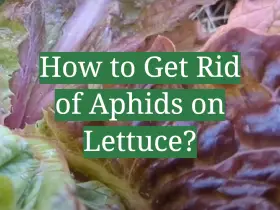


I remember the first time I ever saw fire ants. It was in my garden, and they were everywhere! I had no idea how to get rid of them, and they were quickly taking over my flowers and plants.
I did some research and found a few methods that seemed to work. The first was to pour boiling water on the mound. This will kill the queen and the rest of the colony will die off.
The second method was to use a bait called “fire ant bait.” This bait is made with sugar and borax, and it will poison the ants. Be careful not to touch the bait yourself, as it can be harmful if ingested.
I tried both of these methods and they worked like a charm! Within a few days, the fire ants were gone and my garden was back to normal. If you’re having trouble with fire ants in your garden, I would recommend trying one of these methods.
I struggled for years with fire ants taking over my garden. I would try different methods to get rid of them, but they always managed to find a way back. I was about to give up and resign myself to living with these pests, when I finally found the solution.
The key is patience. You can’t rush this process; it will take time, but it’s well worth it in the end. You’ll need a bucket, some hot water, and some dish soap. Fill the bucket with hot water and add a good amount of dish soap. Stir it until the bubbles are big enough to cover the surface of the water.
Next, take your garden hose and slowly pour the soapy water over the ant hill. Be careful not to pour too fast or you’ll wash away the soil and ruin your efforts. Allow the soap solution to sit for at least an hour. The ants will be killed by the soapy water and will eventually drown.
It may take a few applications, but eventually the ant hill will be completely destroyed and the ants will be gone for good.
There was a time when my garden was absolutely infested with fire ants. It seemed like they were everywhere I turned! I tried all sorts of methods to get rid of them, but nothing worked. They just kept coming back.
I finally decided to call an exterminator. It was a bit of an expensive option, but it was well worth it. Within a few weeks, the ants were gone and my garden was back to normal. If you’re having trouble getting rid of fire ants on your own, I highly recommend hiring an exterminator.
When I was younger, my family had a huge garden. We would spend hours outside planting tomatoes, cucumbers, and other vegetables. Every year we would have to deal with those pesky fire ants. They would get into our food and it was just a general nuisance. We tried everything- vinegar, soapy water, even hot pepper powder. But nothing seemed to work for long. Finally, my dad came up with the perfect solution. He poured a gallon of gasoline around the edge of the garden. The ants wouldn’t cross the line and we could enjoy our garden without having to worry about them.
I read a lot of articles on how to get rid of fire ants, and the most popular suggestion was using salt. I sprinkled salt all around the ant hills in my garden and waited for them to die. A few days later, I checked on the hills and saw that the ants were still there, alive and well. I was bummed out because I really wanted to get rid of them. I’m not sure if the salt worked or not, but I’m going to keep trying until they’re gone!
I remember when I was just a little girl, my parents would always get these huge jars of bleach to get rid of the fire ants in our garden. They would pour it all around the edges of our yard and the ants would disappear. I was always amazed at how well it worked and how quickly the ants would die. Now that I have my own home, I’ve had to deal with my own infestation of fire ants. I’ve tried all of the traditional methods- pouring boiling water on their mounds, spraying them with pesticides, even using traps- but nothing seems to work. I’ve been considering using bleach like my parents did, but I’m not sure if it will kill the ants or just make them relocate. Has anyone had any success using bleach to get rid of fire ants?
I have a confession to make. I have a personal vendetta against fire ants. There is something about their tiny little bodies that just makes my skin crawl. I have tried every method in the book to get rid of them, but nothing has worked as well as Dawn dish soap.
I mix a few drops of Dawn dish soap with some water in a spray bottle and then go on a rampage, squirting the soap wherever I see the ants. Within minutes, they are all dead. The best part is that Dawn dish soap is safe for plants and animals, so it’s not harmful to my garden or pets.
I was always so terrified of fire ants. I would see them in my garden and near my house and I would get so scared. I didn’t know how to get rid of them and I didn’t want them to sting me.
One day, I decided to do some research on how to get rid of fire ants. I found a few methods that seemed like they would work, so I tried them out.
The first method was to pour boiling water on the anthills. This seemed to work pretty well, but it was really hard to get the water all the way up to the anthill. The second method was to sprinkle borax around the anthill. This worked really well, but it was also really hard to get the borax all the way up to the anthill.
The third method was to use a pesticide spray. This worked pretty well, but it was also really expensive and it wasn’t always easy to find a pesticide that would kill fire ants.
After trying out all these different methods, I finally found one that worked really well for me. I used a mixture of boiling water and Dawn dish soap. I would pour the boiling water on the anthill and then I would squirt Dawn dish soap all over the anthill. This worked really well and it was a lot easier than trying to pour boiling water all the way up to the anthill.
This is how I got rid of my fire ants in the garden. First, I dug a moat around the perimeter of the garden to keep them from getting in. Next, I mixed up a solution of hot pepper sauce, vinegar and water and poured it over the ant hills. Finally, I covered the hills with soil. The hot pepper sauce killed the ants, the vinegar kept them from coming back and the soil kept them from rebuilding their hills.
I’ve battled fire ants for years using various methods, but the most effective solution I’ve found is a homemade fire ant killer using Dawn dish soap.
To make the killer, mix one tablespoon of Dawn dish soap with one cup of water in a spray bottle. Spray the solution directly on the ants and their mound. The soap will kill them instantly.
I’ve used this method for years and it’s always been successful. If you have a severe infestation, you may need to repeat the treatment a few times, but it’s a lot cheaper and more environmentally friendly than using pesticides.
I’ve never had to deal with fire ants before, but I imagine that getting rid of them would be a huge pain. I have, however, used vinegar to get rid of other types of ants, so I’m going to share what worked for me.
First, I tried spraying the vinegar directly on the ants. This didn’t seem to work very well, as they kept coming back. Then I tried pouring it around their entrances to their nests, and this seemed to work much better. Within a day or two, all the ants were gone!
I was so excited to finally start my vegetable garden this year. I worked so hard prepping the soil and planting all of my seeds. But within a week of planting, I started noticing these little red ants everywhere. At first I thought they were just ordinary ants, but then I noticed that they were forming mounds near my plants. And then I realized they were fire ants!
I did some research and found out that fire ants are notorious for killing plants. Not only do they eat the leaves and stems of plants, but they can also damage the roots. So needless to say, I was devastated. I didn’t know how to get rid of them and I didn’t want to lose my hard-earned vegetable garden.
But then I discovered a product called amdro. Amdro is a granulated insecticide that is specifically designed to kill fire ants. It’s safe for use around pets and children, and it’s very easy to use. You just sprinkle it on the ant mounds and the ants will carry it back to the nest where it will kill the queen and all the other ants.
I applied amdro to my garden twice a week for about two weeks, and the fire ants were gone in no time! My garden was saved and I was able to continue enjoying all my fresh vegetables.
I was spending a lovely day outside in my backyard when I noticed an army of ants marching across my lawn. At first, I didn’t think much of it, but then I realized that the ants were fire ants! I quickly googled how to get rid of fire ants and found out that vinegar is a great natural deterrent. I went into the house and grabbed a bottle of vinegar and marched back outside. I poured the vinegar on the ant hill and within minutes, the ants were gone! It was a great feeling to know that I had eradicated these pesky critters from my yard without using any harsh chemicals.
I remember when I was a child, my grandfather would always get rid of the red ants in our garden. He would use a mixture of water and salt to create a spray that he would use to kill the ants. The process was relatively simple – he would mix the water and salt together in a spray bottle, and then he would spray the mixture on the ant hill. Within a few minutes, the ants would be dead. Thankfully, this method still works today, and it is a great way to get rid of red ants in your garden.
I have always had a love/hate relationship with fire ants. I love that they are so hardworking and make my garden look so neat, but I hate that they can be such a nuisance.
This year, the fire ants have been particularly bad. They seem to be everywhere! I have tried everything to get rid of them, but nothing has worked. I even tried using those ant killer pellets, but the little buggers just keep coming back.
I don’t know what I’m going to do if they don’t go away soon. My patience is wearing thin and my garden is starting to look like a disaster zone.
I was reading an article the other day on how to get rid of fire ants in your garden and I decided to give it a try. I have never had a problem with them before, but this year they seem to be everywhere!
I followed the instructions in the article and started by mixing some sugar, water and borax together in a bowl. I then poured the mixture into little plastic containers that I had lying around and placed them near the ant hills.
The next day, there were dead ants all over the place! I am so glad I tried this because it was so easy and cheap. I will definitely be doing this every year from now on!
I was recently reading about how orange oil can be used to get rid of fire ants. I was a little hesitant to try it at first, but then I thought, what do I have to lose? So I went out and got some orange oil and gave it a try. And it worked! Within minutes of applying the oil, the ants were gone. I was so happy! If you’re looking for an easy and effective way to get rid of fire ants in your garden, I would definitely recommend trying orange oil.
I am an avid gardener, and I have had my share of problems with fire ants. They can be a real nuisance in the garden, and can cause a lot of damage to plants. Here are a few tips on how to get rid of them:
1. First of all, you need to find the nest. The best way to do this is to pour a little bit of water on the ground where you think the nest is, and then watch for the ants to come out. Once you have found the nest, you can start to treat it.
2. One way to treat the nest is with a product called Amdro. This is a granular insecticide that you can buy at most garden stores. You simply sprinkle it around the nest, and it will kill the ants.
3. Another way to get rid of fire ants is by using boiling water. You can pour boiling water directly on the nest, and it will kill the ants instantly.
4. Finally, you can also use a chemical called acephate. This is a pesticide that you can buy at most hardware stores. You simply mix it with water, and then pour it on the nest. It will kill the ants quickly.
I was so excited to finally have my own house and yard. I imagined spending lazy Saturdays lying in the sun, reading a book while my kids played in the backyard. However, my dreams were quickly shattered when I discovered a fire ant hill in my yard.
I did some research and found that the best way to get rid of them is to pour boiling water on the ant hill. I gathered up a pot of boiling water and poured it right on top of the ant hill. The ants were quickly dispatched and my yard was free of them.
I was having a picnic in my garden when I suddenly noticed fire ants crawling all over the food! I knew I had to get rid of them fast before they ruined everything.
I had heard that you could get rid of fire ants naturally by using boiling water, so I grabbed a pot and started boiling water as fast as I could. Once the water was boiling, I poured it over the ant hills, and the ants scurried away.
It worked like a charm! Within minutes, the ant hills were deserted and my garden was free of fire ants. If you ever find yourself in a similar situation, I recommend using boiling water to get rid of them quickly and naturally.